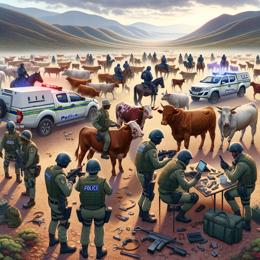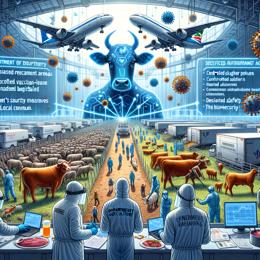Picture: for illustration purposes
Avian Flu Outbreak Strikes Western Cape Resulting in Heightened Biosecurity Measures
An outbreak of avian flu has struck Western Cape, following the introduction of chickens from an infected province, subsequently leading to an incremental rise in biosecurity measures. This unfortunate development marks the province's first encounter with the H7 High Pathogenicity Avian Influenza (HPAI) since June. The disease was first diagnosed on a farm in George, located on the scenic Garden Route. Quarantine and culling operations on the affected farm have already commenced, according to Agriculture MEC Ivan Meyer.
This news comes as a significant blow to the Western Cape poultry industry. The Poultry industry, the behemoth of South Africa’s agricultural sector, majored a gross value increase of R59-billion in 2022 from R47-billion in 2019, as per South African Poultry Association's estimates.
Meyer expressed his concern, urging local poultry owners to bolster biosecurity measures markedly while demonstrating extreme care when carrying out activities such as the introduction of new chickens or allowing visitors and vehicles into poultry farms. In addition, the recklessly practiced act of moving chickens from infected provinces should be unequivocally avoided, due to its perilous consequences for the entire Western Cape should additional H7 HPAI cases emerge.
Recently, avian flu has incited an egg shortage crisis in South Africa, aggravating concerns pertaining to chicken meat supplies. The disease outbreak has witnessed eggs becoming a sought-after commodity, with significant price escalations.
Dr. Noluvuyo Magadla, the state veterinarian and director of animal health, continues to press poultry owners to adhere to general recommendations in order to hinder disease transmission between farms.










